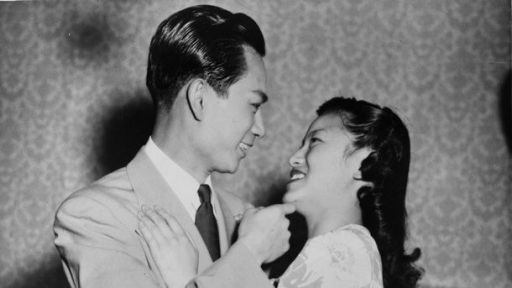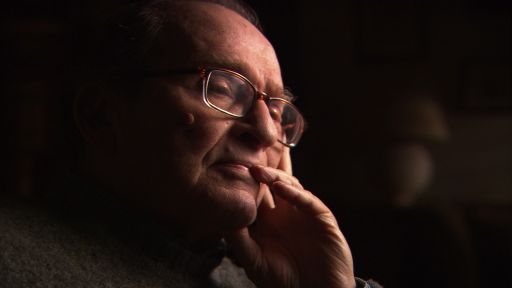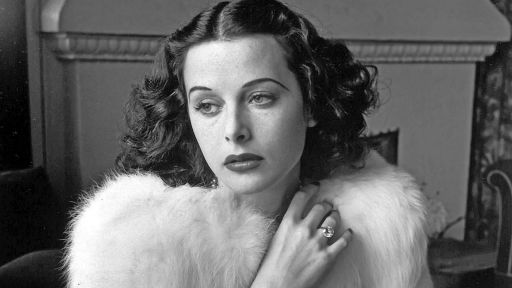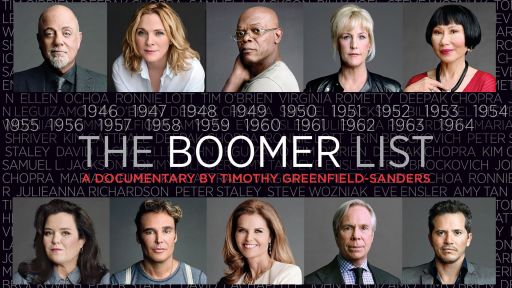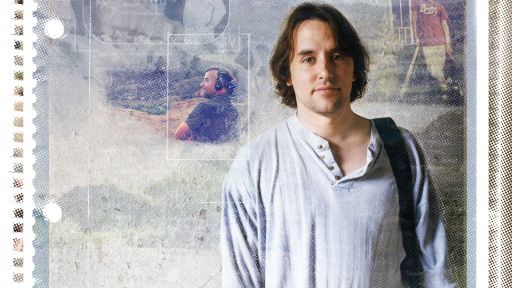From the sexed-up Suzie Wong to the kung fu fighting Bruce Lee, American Masters tackles issues of race and representation in Hollywood Chinese.
The 90-minute film illuminates a century of Chinese American cinematic history, from rare silent classics such as Marion Wong’s The Curse of Quon Gwon (1916) to the contemporary critical and commercial success of Ang Lee’s Brokeback Mountain (2005). Timed for broadcast during Asian Pacific American Heritage Month, American Masters: Hollywood Chinese premieres nationally Wednesday, May 27, 2009 at 9 p.m. (ET) on PBS (check local listings). The film features a treasure trove of clips, punctuated with personal accounts from the movie industry’s most accomplished Chinese and Chinese American talent.
“American Masters is proud to share with our viewers the extraordinary stories of pioneering Chinese and Chinese American artists in Hollywood,” says Susan Lacy, creator and executive producer of American Masters, a six-time winner of the Emmy Award for Outstanding Primetime Non-Fiction Series. “Their immeasurable contribution to American cinema continues today with a new wave of critically-acclaimed Asian films and Oscar-winning blockbusters. The film gives strong perspective to this little-known chapter of motion picture history.”
American feature films often portray the Chinese as exotic and devious characters – or simply the “other” – reflecting the entertainment industry’s inherent racial prejudices as well as its fascination with the Far East. Hollywood Chinese features candid interviews and back lot stories from artists in front of and behind the camera, including Joan Chen, James Hong, David Henry Hwang, Nancy Kwan, Ang Lee, Christopher Lee, Justin Lin, Luise Rainer, Amy Tan, Wayne Wang, and BD Wong.
The documentary chronicles the full gamut of Chinese representation in Hollywood. It brings to light the controversial yellowface casting of Luise Rainer in The Good Earth (1937) and the stereotyped caricatures played by Chinese American actors such as James Hong in Bloodsport 2 & 3 (1996 and 1996). It also addresses the eventual trend of Asian empowerment in films such as Flower Drum Song (1961) starring Nancy Kwan and the film-adaptation of Amy Tan’s The Joy Luck Club (1993) directed by Wayne Wang.
American Masters: Hollywood Chinese is a production of DeepFocus Productions, Inc. Productions in association with WNET.ORG and the Center for Asian American Media for PBS. The film is produced, directed, written, and edited by Arthur Dong. Susan Lacy is the creator and executive producer of American Masters.
American Masters is produced for PBS by THIRTEEN. To take American Masters beyond the television broadcast and further explore the themes, stories, and personalities of masters past and present, the companion Web site offers interviews, essays, photographs, outtakes, and other resources. American Masters is made possible by the support of the National Endowment for the Arts and by the Corporation for Public Broadcasting. Additional funding for American Masters is provided by Rosalind P. Walter, The Blanche & Irving Laurie Foundation, Jack Rudin, The André and Elizabeth Kertész Foundation, and public television viewers.
Major funding for Hollywood Chinese provided by Center for Asian American Media, Ford Foundation, California Council for Humanities’ California Stories Initiative, National Endowment for the Arts, Media Arts Fellowship, Gee Family Foundation, Independent Television Service, with funds from the Corporation for Public Broadcasting and public television viewers.
For more about Chinese American culture, explore the Chinese American Museum online or at its home in historic downtown Los Angeles. Beginning October 23, 2009, Arthur Dong, director of AMERICAN MASTERS: HOLLYWOOD CHINESE, will present Hollywood Chinese: The Arthur Dong Documentary Collection at the museum.
If you would like to purchase Hollywood Chinese on DVD, visit www.hollywoodchinese.com

